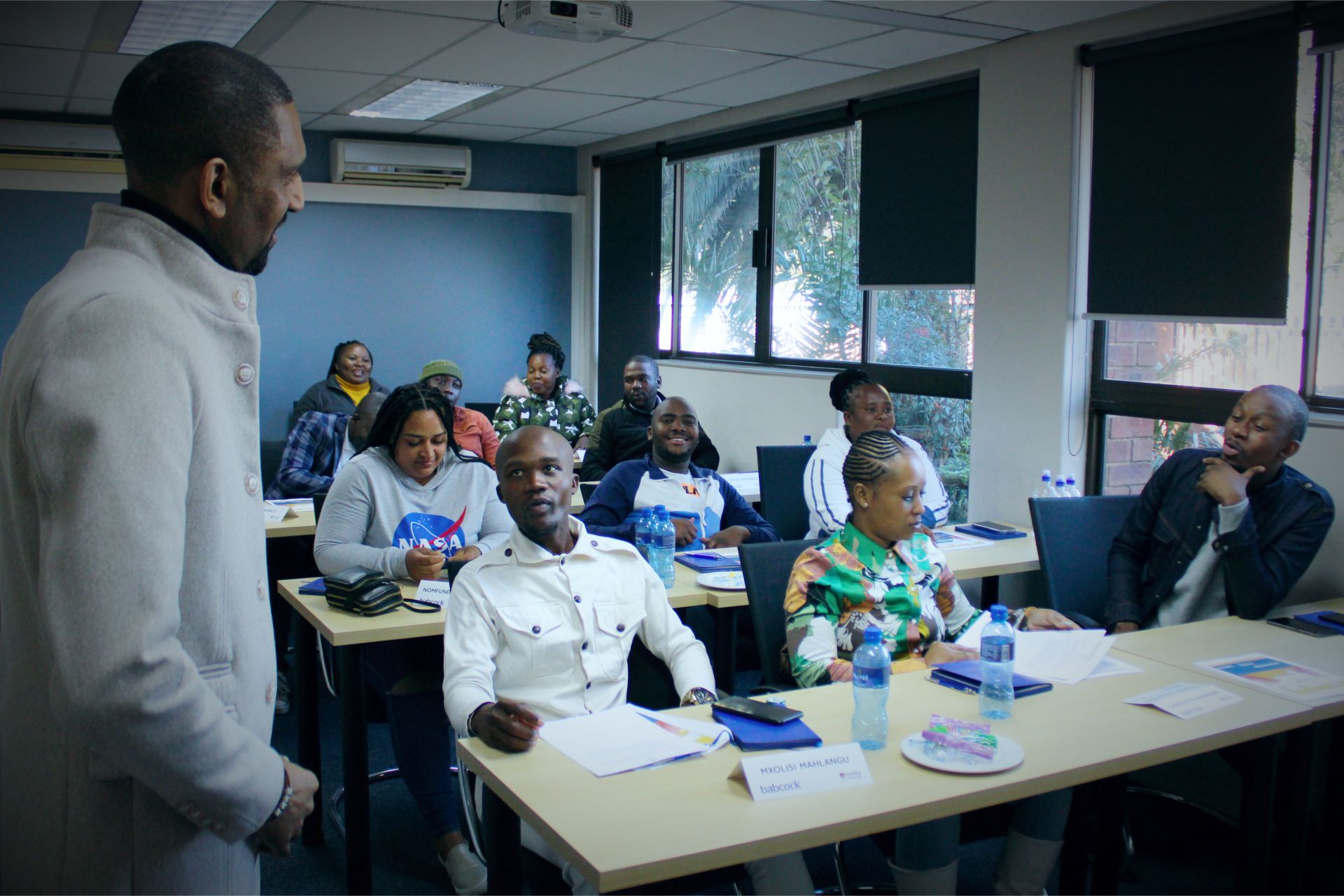To make the most of the talent in the communities in which it operates, Babcock Africa is bringing authentic entrepreneurial mentorship to previously disadvantaged black-owned businesses through its new in-house Enterprise Supplier Development (ESD) programme.
Headed up by Group Human Resources director, Dr Hamilton Sithole and Learning and Development manager, Kathryn Paradisos, the new programme is operated through Babcock’s Education and Training division and takes a hands-on approach to small business development by providing the tools and resources needed to establish, sustain and grow entrepreneurial ventures.
The initiative works closely with local community forums in areas where Babcock operates to identify, support and uplift previously disadvantaged black-owned businesses. Course facilitators are drawn from within the Babcock group, giving students the benefit of learning real-world skills and practical problem-solving techniques that add direct value to their own business operations.
Sithole says the project aligns with Babcock’s transformation approach of nurturing social initiatives that empower and positively impact the communities in which the business operates. “Our in-house ESD programme is holistic and streamlined to give back to communities by providing authentic value for its participants,” he comments.
Babcock works side by side with business owners to identify their individual needs. The range of assistance it offers is as diverse as the participants and includes resources varying from laptops and equipment to raw materials.
Current students represent an assortment of trades ranging from jewellery makers and worm farmers, to beauticians, construction service providers and PPE suppliers. Training material is customised to benefit individual business needs, while a mentorship element ensures each participant receives quality time with business experts.
In order to provide comprehensive training for each student, Babcock approached internationally accredited Henley Business School to supplement the training programme. Babcock’s training modules cover subjects such as procurement, safety, leadership and managing people. It also offers a My Business course aimed at helping participants bridge the gap between academic learning and practical operations development. Henley provides entrepreneurship, marketing, finance, customer management, project management and operations modules.
Paradisos says that besides wanting to work in association with a renowned establishment, Henley Business School also aligned with Babcock’s approach to people and learning. “It was important for us to partner with an organisation that shares Babcock’s social sustainability vision,” she says. “We have a shared mission of helping people succeed.”
Babcock launched its new ESD programme in April 2023 and is currently training its first batch of 26 students. The small business owners were handpicked by Babcock from the greater Middelburg area after being identified by local community forums and verified by Babcock’s human resources department as owning viable, legal businesses.
“Our selection criteria are simple and all-inclusive. We look at communities where Babcock operates and focus on the development and upliftment of those struggling the most,” says Sithole.
The participants complete five project blocks every alternate month with each block running for three days. Training takes place at Babcock’s Education and Training Centre in Bartlett. Paradisos says this structure ensures the programme has minimal impact on the participants’ businesses so that they can continue with their daily operations. She adds that wherever possible, the suppliers used, such as caterers and transport services, are themselves small business owners.
Once furnished with the necessary tools and resources to grow their enterprises, graduates are encouraged to evolve organically and independently, with Babcock offering mentorship and advice if needed. Sithole explains that the project’s focus is on giving back to the community by offering graduate entrepreneurs access to the economy in a way not defined by Babcock or a corporate programme.
“This initiative is people focused. As we start with our national roll-out, we’ll use what we’ve learned this year to make ongoing improvements to our programme and the lives of the participants,” says Sithole.
The next group of entrepreneurs will begin their training in April next year and will be drawn from a countrywide pool of previously disadvantaged communities residing in Babcock business areas.






